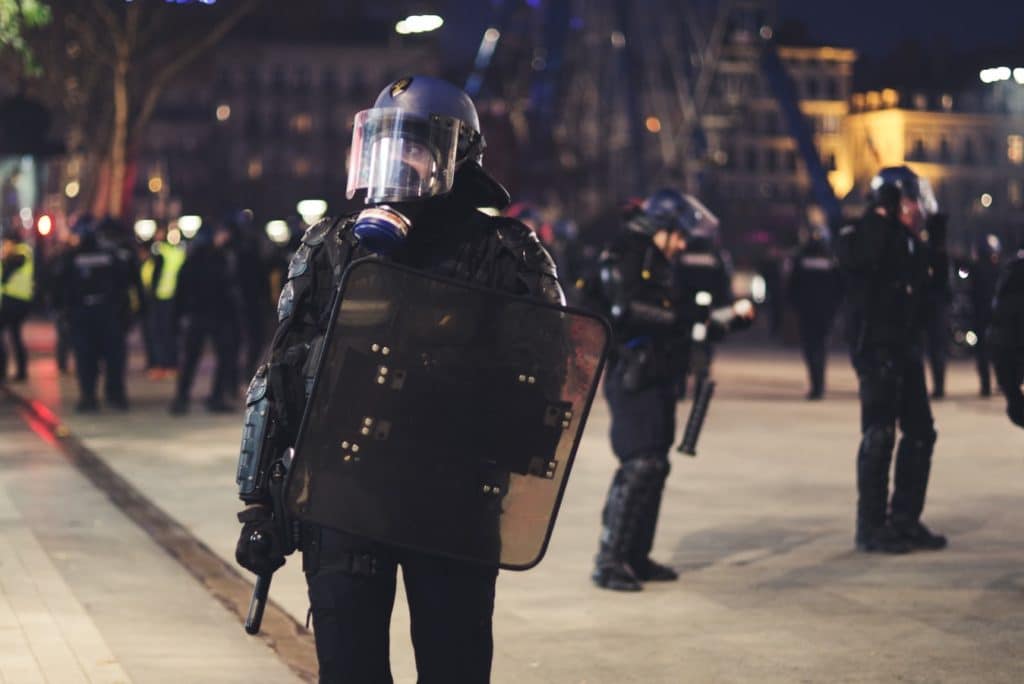With the current civil unrest in America and in countries around the world, many are wondering what is the next step for making positive change. I have speculated that ending cannabis prohibition and the overall War on Drugs is essential to furthering the conversation for both civil rights and eliminating racist practices by police and other bodies of law enforcement.
We recently reported on the importance of ending the failed War on Drugs as a first step toward putting an end to repressive behavior toward people of color, over-policing and mass incarceration. The legalization of recreational (adult-use) cannabis will not put an end to discriminatory policing against communities of color and other marginalized groups, but it would clearly be a step in the right direction.
Just last week, the Law Enforcement Action Partnership (LEAP) released policy and practical recommendations to address the urgent need to overhaul American police. Their recommendations, signed by more than 80 current and retired law enforcement professionals across the US, call on federal, state, and departmental officials to take specific steps to improve accountability, transparency, and oversight into police activities. The document re-envisions the role of police by recommending robust funding for evidence-based social support programs that shrink the scope of law enforcement responsibilities and for the limited use of military equipment, both of which would minimize conflict between police and communities.
The recommendations call for an independent database to track police personnel records with a national licensure system for officers; immediate implementation of a duty-to-intervene policy in departments nationwide, requiring officers to intervene when they witness excessive force and misconduct by their colleagues and report incidents to superiors; and ending the union contract-mandated destruction of personnel records that erase evidence of officer misconduct. The recommendations also call upon Congress to “establish a national standard for the use of deadly force that upholds the sanctity of human life” and urges federal action to address qualified immunity, a legal precedent that limits law enforcement accountability when cases go to court.
Inge Fryklund is a former Supervisor of the Criminal Appeals Division in the a State’s Attorney’s Office in the Chicago area and currently serves as the LEAP board treasurer. In my interview with her, Fryklund touched on the War on Drugs and how it relates to the overall system and the need for reform. “There is a symbiotic relationship between the War on Drugs, police militarization, racism, and the violence. As long as the drug war is hanging around that gives a hook for police to go after people.”
“Accountability measures that show an agency is serious about respecting the rights of all of its residents help the police as much as they help the communities we serve,” said Police Major Neill Franklin (Ret.), a 34-year law enforcement veteran and executive director of LEAP. “There’s no better way to restore community trust. And we cannot do our jobs without trust.”
Fryklund added, “Accountability is key. Additionally, records of disciplinary actions against police should not be secret.”
“People are not protesting out of boredom; they are tired of watching their loved ones and neighbors die during police encounters. The only way to subdue the chaos we’re witnessing in cities across the US is to reevaluate how policing is done, create consistent accountability standards between the thousands of agencies nationwide, and build a new system that truly serves civilians,” said Chief Brendan Cox (Ret.), a 23-year law enforcement veteran who retired from the Albany Police Department of New York in 2017.
LEAP calls on their brothers and sisters in uniform and those retired from service who see the need for change to join them in publicly endorsing these recommendations. Swift, decisive action is the only way to improve police-community relations over the long term and de-escalate social unrest in the near term.

The Law Enforcement Action Partnership (LEAP) is a nonprofit group of police, judges, prosecutors, and other criminal justice professionals who stand behind evidence based public safety solutions like accountability and transparency. LEAP’s more than 270 representatives speak on behalf of over 5,000 law enforcement members nationwide.





